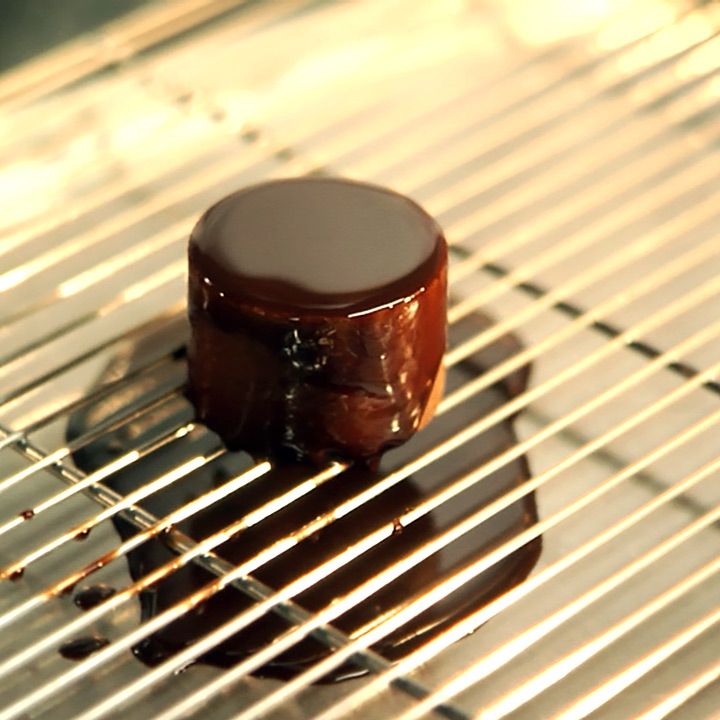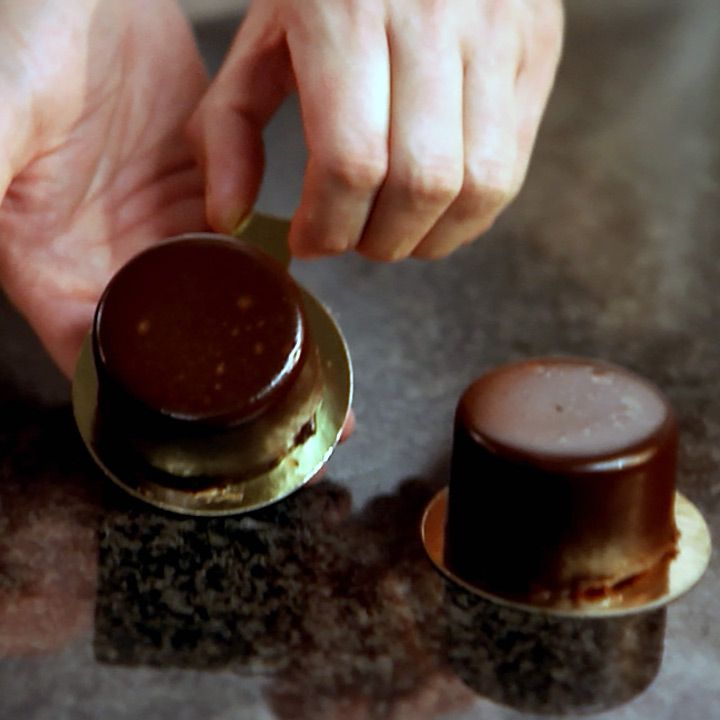Troubleshooting: Glazes
Possible causes and solutions
The glaze was applied at too high a temperature
This makes the pastry surface melt and causes your chocolate mirror glaze to slide off.
Condensation on the frozen pastries
Condensation on your frozen cakes and pastries will prevent your chocolate mirror glaze from adhering to the surface, causing it to slide off. To avoid this, only take a few cakes or pieces of pastry out of the freezer at a time and glaze them immediately. Then move on to the next batch.
The temperature of the pastries is too low or too high
The pastries should be at exactly -18°C. At this temperature, your chocolate mirror glaze sets just perfectly.
The glaze is too runny
A recipe that isn’t well balanced or applying the wrong cooking temperatures creates a chocolate mirror glaze that’s way too fluid.
Possible causes and solutions
The glaze doesn’t shine when applied on pastries
Only the exact amount of cocoa powder or chocolate in combination with the other ingredients in your recipe creates a high gloss.
The glaze can’t be kept in a freezer
Some chocolate glazes can’t be stored in a refrigerator or freezer, because a moist environment makes them lose their gloss and, consequently, their appeal. Try one of the chocolate mirror glaze recipes shown in our tutorials: they yield beautiful results and can be kept in the freezer after you’ve applied them onto your pastries.
Possible causes and solutions
Air was mixed in accidentally
Always mix together the ingredients of your chocolate mirror glaze at low speed in a high recipient while keeping the blade of your stick blender submerged at all times.
The glaze isn’t fluid enough
You may have used a chocolate that isn’t fluid enough, e.g. a one-drop chocolate instead of a three-drop chocolate. If so, it’s better to switch to chocolate with a three-drop fluidity.
The glaze was applied on pastries that were too cold
Always apply your chocolate mirror glaze onto pastries frozen at exactly -18°C.
Possible causes and solutions
The glaze recipe wasn’t balanced
Only the exact amount of cocoa powder or chocolate in combination with the other ingredients in your recipe creates the perfect texture.
The chocolate you used was too fluid
Always use chocolate with a three-drop fluidity. Chocolate that’s too runny or fluid brings out a stiff texture in your chocolate mirror glaze.
Possible causes and solutions
The glaze was exposed to condensation
If your chocolate mirror glaze comes into contact with moisture, it will give it these tiny dull spots that ruin the perfect mirror-like appeal of your glazed cakes and pastries. To keep condensation from forming on your glazed delicacies, immediately store them in a refrigerator at 4°C when you take them out of the freezer and keep them in there for at least 2 hours. This way, you’ll make sure they retain their flawless appeal.


















